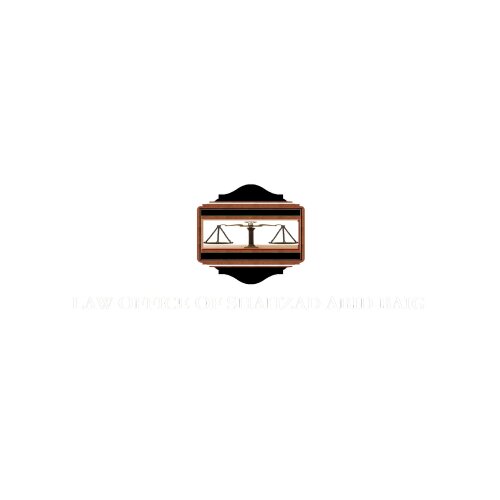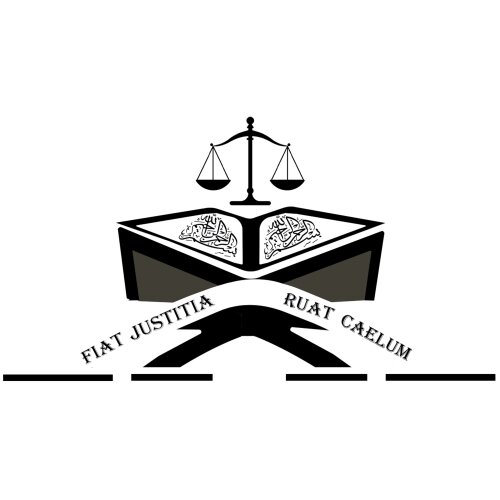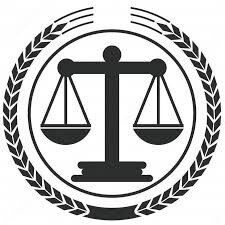Best Animal Law Lawyers in Pakistan
Share your needs with us, get contacted by law firms.
Free. Takes 2 min.
Or refine your search by selecting a city:
List of the best lawyers in Pakistan
About Animal Law in Pakistan
Animal Law in Pakistan encompasses the body of legislation, case law, and legal principles concerning the treatment, rights, and welfare of animals within the country's jurisdiction. In recent decades, there has been growing awareness and activism surrounding animal rights, leading to the development and enforcement of various laws aimed at protecting animals from cruelty and exploitation. These laws cover various aspects including animal welfare, prevention of cruelty, and regulation of animal breeding and trade. Pakistan's legal framework for animal protection primarily includes statutes such as the Prevention of Cruelty to Animals Act, 1890 and corresponding provincial laws.
Why You May Need a Lawyer
Several situations might require individuals or organizations to seek legal assistance in the realm of Animal Law. Common instances include:
- Cases of animal cruelty or neglect, where it is necessary to report and legally address the issue.
- Disputes over animal ownership, particularly in divorce or inheritance cases.
- Regulatory compliance issues for businesses involved in farming, breeding, or selling animals.
- Defending or prosecuting cases related to breach of animal protection laws.
- Legal assistance for non-profit organizations working towards animal welfare and rights advocacy.
Local Laws Overview
Animal Law in Pakistan is influenced by both federal and provincial legislation. Key aspects include:
- Prevention of Cruelty to Animals Act, 1890: This is the primary piece of legislation aimed at preventing the mistreatment of animals. It specifies various offenses related to animal cruelty and prescribes penalties.
- Punjab Animal Health Act, 2017: This law aims to enhance animal health care standards in the Punjab region, addressing issues like zoonotic diseases and veterinary services.
- Wildlife Protection Laws: Each province has its own wildlife protection statutes, which regulate the conservation and management of wildlife species.
Frequently Asked Questions
What constitutes animal cruelty under Pakistani law?
Animal cruelty is any act of violence or neglect that results in unnecessary suffering, pain, or death of an animal. This includes beating, mutilation, starvation, and abandonment. The Prevention of Cruelty to Animals Act details the acts considered cruel and their corresponding penalties.
How can I report an incident of animal abuse?
You can report animal abuse to local authorities or law enforcement agencies. You may also contact animal welfare NGOs operating in your area that can guide you on the next steps.
Are there any special laws for endangered species?
Yes, endangered species are protected under various provincial wildlife protection acts, which outline conservation efforts and prohibit hunting, capturing, or trading of these species without appropriate permits.
What are the penalties for violating animal protection laws?
Penalties for violating animal protection laws can include fines, imprisonment, and in some cases, both. The exact punishment depends on the severity of the offense and is detailed in specific legislation such as the Prevention of Cruelty to Animals Act.
Is the use of animals in entertainment regulated?
Yes, there are regulations concerning the use of animals in entertainment, such as circuses and film productions, to ensure their humane treatment and welfare. Special permits may be required.
Can tenants keep pets in rental housing?
This often depends on the lease agreement terms between the landlord and tenant. It is essential to review the rental contract to understand any restrictions or permissions regarding the keeping of pets.
What should I do if I find a wild animal in distress?
Contact a local wildlife conservation authority or an animal rescue organization for assistance. It is advised not to approach or handle wild animals unless necessary to avoid further distress or injury to the animal or yourself.
Are there specific regulations for pet breeders?
Yes, commercial breeders must comply with certain standards and regulations to ensure the ethical and healthy breeding of animals. This may include licensing and routine inspections.
How can I start an animal welfare NGO in Pakistan?
Starting an NGO requires registration with the relevant government bodies, formulating a clear mission statement, and ensuring compliance with non-profit laws. Legal advice can be beneficial in navigating these processes.
Can legal action be taken against animal experimentation?
Animal experimentation is regulated, and legal action can be taken if experiments violate established ethical standards or laws. Institutions conducting such experiments must adhere to strict guidelines to ensure humane treatment.
Additional Resources
For more information or assistance, consider reaching out to the following resources:
- Animal Welfare Organizations: Groups like the Pakistan Animal Welfare Society (PAWS) can offer guidance and support.
- Provincial Wildlife Departments: Each province has its department focused on wildlife and conservation issues.
- Legal Aid Services: Organizations that offer legal aid can help if you require representation or legal advice in animal law matters.
Next Steps
If you need legal assistance in an Animal Law matter in Pakistan, consider the following actions:
- Contact a lawyer specializing in Animal Law or relevant legal practitioners in your area. They can offer consultation and representation.
- Gather necessary documentation and evidence related to your specific case or issue.
- Reach out to animal welfare organizations for advice and direction, especially if dealing with cases of cruelty or neglect.
- Stay informed about your rights and obligations under the current animal protection laws.
Lawzana helps you find the best lawyers and law firms in Pakistan through a curated and pre-screened list of qualified legal professionals. Our platform offers rankings and detailed profiles of attorneys and law firms, allowing you to compare based on practice areas, including Animal Law, experience, and client feedback.
Each profile includes a description of the firm's areas of practice, client reviews, team members and partners, year of establishment, spoken languages, office locations, contact information, social media presence, and any published articles or resources. Most firms on our platform speak English and are experienced in both local and international legal matters.
Get a quote from top-rated law firms in Pakistan — quickly, securely, and without unnecessary hassle.
Disclaimer:
The information provided on this page is for general informational purposes only and does not constitute legal advice. While we strive to ensure the accuracy and relevance of the content, legal information may change over time, and interpretations of the law can vary. You should always consult with a qualified legal professional for advice specific to your situation.
We disclaim all liability for actions taken or not taken based on the content of this page. If you believe any information is incorrect or outdated, please contact us, and we will review and update it where appropriate.
Browse animal law law firms by city in Pakistan
Refine your search by selecting a city.

















